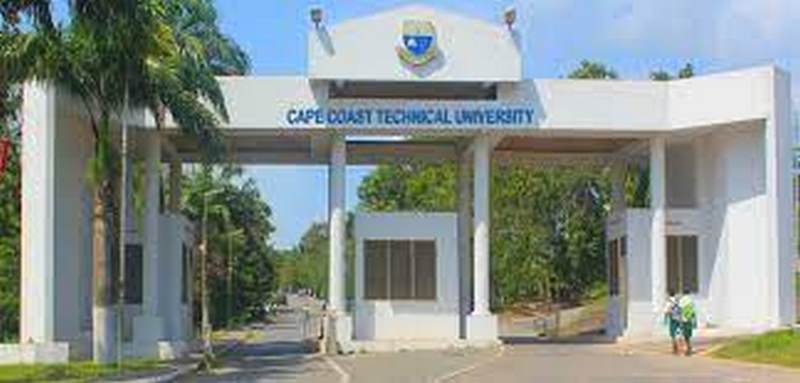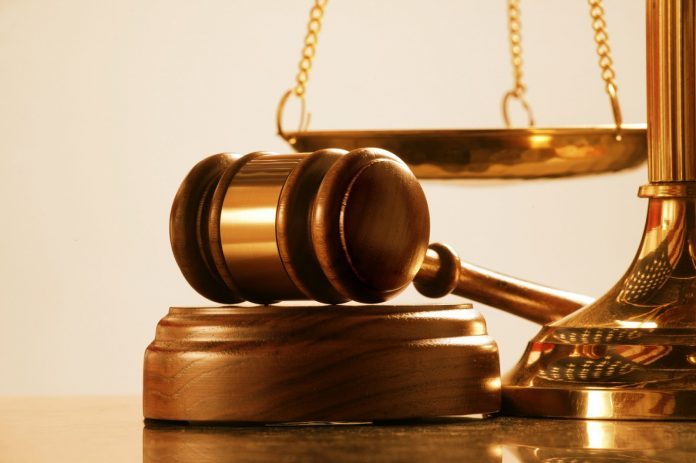Some 16 Cape Coast Technical University students have filed a motion on notice for an interlocutory injunction to restrain the university and its academic board from conducting the impending end of second-semester examinations for the 2020/21 academic year.
The exams, which are expected to start on Monday, September 6, would have to be put on hold until the final determination of a human rights application challenging the validity, legality and constitutionality of the decision by the University and its academic board to dismiss the students from the University.
On April 19, 2021, the students numbering about 43 were either dismissed outright from the Cape Coast Technical University or rusticated for two semesters from the university because they allegedly had prior possession of examination questions and foreknowledge of examination papers.
After the dismissal of the students, they petitioned the university to find amicable ways of resolving the matter instead of the harsh punishment handed them, but the university refused.
In their individual and group capacities, the students then wrote to the school at different times and appealed against their dismissal.
They were assured by the school authorities that they would reconstitute another committee to review their punishments or call them for their cases to be tried again, probably before the beginning of the second Semester of the 2020/21 academic year, but this is the case that did not materialise.
ALSO:
- I’ve had my fair share of heartbreaks – Adom FM presenter
- Agya Koo sends strong message to Ghanaian parents
The students, who are in court, have always maintained that they did not engage in examination malpractice as being alleged by the university, and neither did they have foreknowledge of the examination questions nor had prior possession of the examination questions, especially where all the questions were past examination questions which had been solved and discussed in class.
The students further explained that none of them, especially, those in court was caught in the examination room with any foreign material or even before the said paper was written. Again, the alleged leaked papers were not marked by the school to confirm that indeed there was any collusion or malpractice.

The dismissal or rustication of the students, the lawyers of the students say, was done arbitrarily and on mere suspicion, adding that the disciplinary actions instituted against them were done in bad faith, actuated by malice, and borne out of ill-will, especially where the lecturer whose paper was said to have leaked and other officers who are in charge of the school examinations as well as the officers and workers who had the custody of the examination papers have not been punished since October 2020 when the incident happened.
The students, through their lawyers, instituted a Human Rights action against the Cape Coast Technical University and its academic board by filing an Application for the enforcement of their fundamental Human Rights and Freedoms on June 29, 2021, at the High Court, Cape Coast.
The lawyers of the school allege that though the Application, which was to be moved on July 13, 2021, suffered several adjournments and delays occasioned by the school until August 19, 2021, when the court advised for amicable settlement out of court, the court advised that the Vice-Chancellor of the school himself, as well as the school management, be part of the settlement process.
In compliance with the orders of the court and out of deep respect for the court, the students subjected themselves to amicable settlement on the 26th and 30th of August, 2021, at the campus of the University.
They said, however, the settlement could not be reached because the school had taken a rigid stance and were unwilling to change their position on the excuse that the policy of the school must be protected; and this was although the students, at the negotiation table, conceded to almost all the proposals of the school during the out-of-court settlement.
The applicants believe such a grant of an injunction will prevent the university from conducting the second-semester examinations without their participation, having fully paid their school and other fees and satisfying other requirements.
The affected students say ending the semester without them would be very unfair and unlawful and demonstrate that the school and its academic board are further violating their rights to education.
Lawyers for the students contend the university has no basis for denying the students of their rights to education, but the school continues to deny the said rights contrary to the express provisions guaranteeing such rights under the constitution of Ghana.
The lawyers further contend the university, in the same vein, has already caused the students to go through inconveniences, shame and embarrassment, waste of precious time, emotional, psychological and physical trauma and violation of their fundamental Human Rights and Freedoms and thus if the university was not restrained from conducting the end of second-semester examinations which signifie the end of the semester or the academic year the students would be worse off.
The basis for the injunction
The Applicants have already paid their school fees and other relevant fees for the 2020/2021 Academic year and were waiting or expecting to go through the entire academic year in peace, but these expectations were cut short by the school and its academic board.
As part of the about 16 reliefs being sought by the Applicants from the Honourable Court, the Applicants are seeking an order directed at the school and its academic board to immediately admit the Applicants back to school to continue with their education in the 2020/21 academic year, including the current semester without any impediment.
That the Applicants are equally seeking an order directed at the school to take necessary steps to organise special classes and subsequent examination for the Applicants at the cost of the Respondents for the Applicants to cover the 1st semester of the 2020/21 academic year which the Respondents unlawfully denied the Applicants and also to allow them to study, prepare and to write the end of the second-semester examinations possibly.
The students were dismissed without any basis, and again the said punishments were based on non-existing laws.
The students were not given a hearing, and also, the persons who investigated students were the same persons who sat on the adjudicatory committee, i.e. the examination malpractice committee, to judge them.
The injunction application has been duly served by the court on the school and its lawyer.

